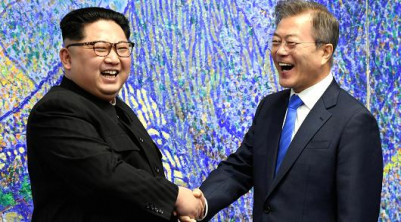
What a difference merely twenty weeks can make in the Korean Peninsula (KP)! In late April BBC described North Korean leader Kim Jong-un (KJU) as a ‘humanised statesman’, President Trump said that those discussing an end to the Korean War would "certainly have my blessing" and another venerable British newspaper was forthright enough in admitting that the ‘world’s commentators, including (us), have underestimated the North Korean leader’ (The Economist 2018). KJU was no longer a ‘blood-thirsty dictator’ who had ‘fed his uncle to dogs’ or a ‘fat rocket man’ out to destabilise peace and security in and beyond the KP. He was ‘intent on working to advance the cause of peace and national reconciliation’ opined BBC, while President Trump hailed KJU’s decision to suspend nuclear and ICBM tests as ‘big progress’ (Financial Express 2018). How could the volatile KP start talking peace and reconciliation so unexpectedly? What caused the pendulum to swing from the depths of despondency on 31 December 2017 to the ridge of high hopes and détente by mid-May? Was it for real? Where could things go wrong? What would it take to consolidate the process? Had a roadmap been agreed to? Does India have a role to play in the process? These questions need to be addressed.
© 2019 ICS All rights reserved.
Powered by Matrix Nodes